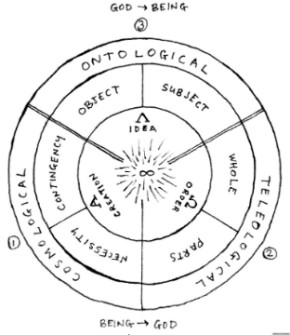The logic of God: Why metaphysical proofs still matter

The cosmos cannot be the source of its own existence. The cosmos is not a necessary being. In this regard, David Hart rightly remarks that “the contingent can only exist derivatively, receiving its existence from the Absolute.”
When Stephen Hawking and Leonard Mlodinow claim that God’s existence is no longer plausible because all things could have come forth from the quantum law of gravity, they fail to recognize, as Hart says, that the issue is “the very possibility of existence as such, not only of this universe but of all the laws and physical conditions that produced it.” It is not necessary that any finite thing, let alone a quantum law, exist. Finite things exist, but they are merely limited modes of being; they are not being as such. A quantum law, insofar as it is, must derive its being from a source.
Hawking and Mlodinow can be excused for their failure to grasp that the issue is “existence as such.” Their misunderstanding is shared by many professional philosophers. In Arguing about Gods, Graham Oppy supposes himself to be undermining Thomas Aquinas’s five ways of demonstrating God’s existence when he remarks that “it is hard to see that there is anything in Big Bang cosmology that rules out the existence of an infinite regress of changers, each changed by another.” Oppy’s point would not have bothered Aquinas at all, since Aquinas allows philosophically for an eternal universe. In fact, none of Aquinas’s five ways depends on the universe having a temporal beginning.




